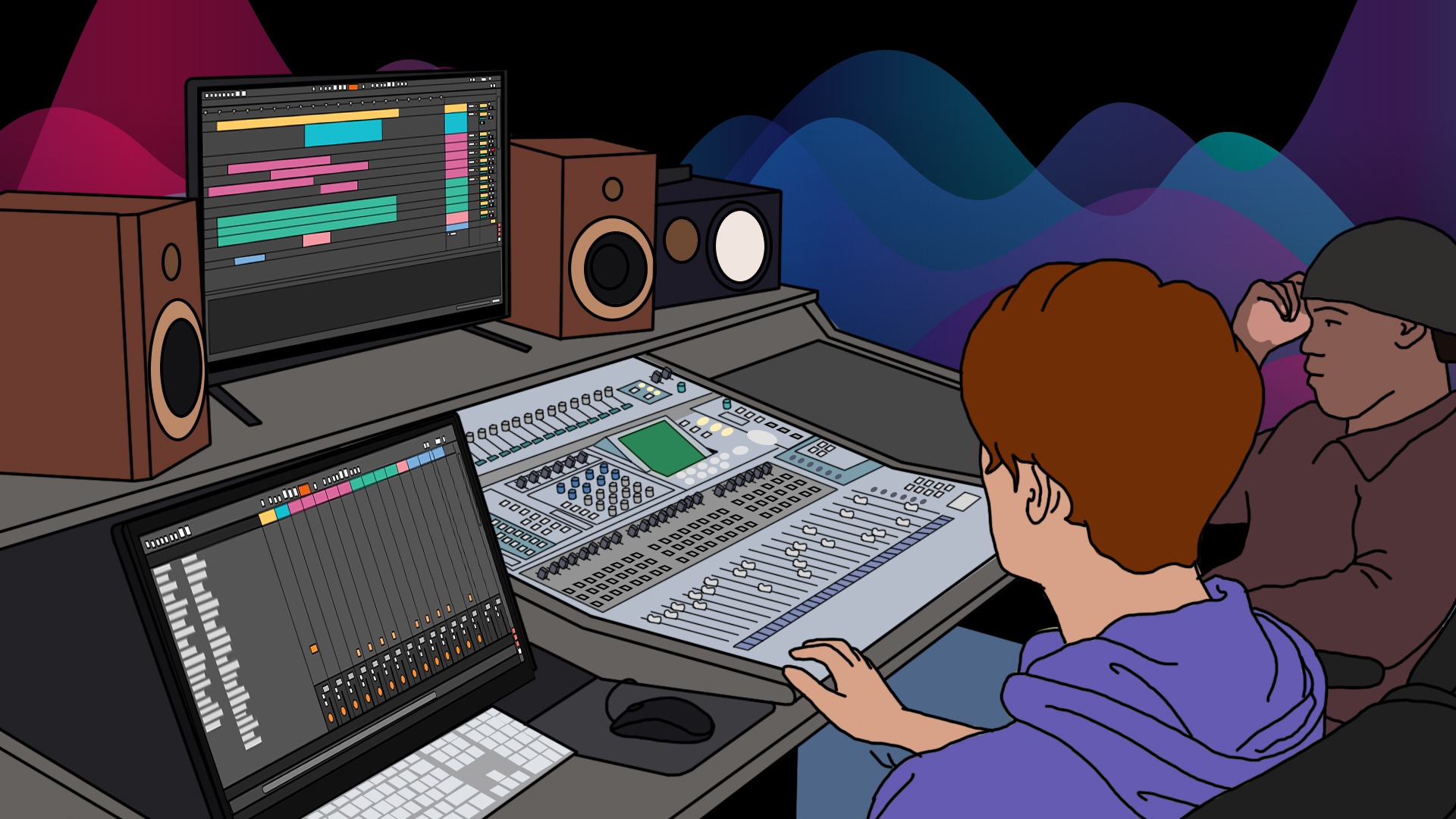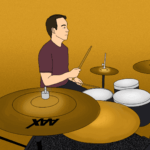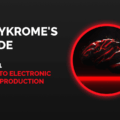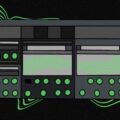The production of a song is one of the most integral, if not THE most integral, parts of creating music. Building a track’s sonic universe requires years of experience, experimentation, and continuous ear training.
It can be challenging to master without professional guidance, and overwhelming to know where and how to begin. To help you get started on your production journey, we’ve sourced and answered some of Quora’s most frequently asked introductory production questions.
What is the best software for a beginner-level music producer?
Every DAW (Digital Audio Workstation) has its own learning curve and will require some time investment. We recommend FL Studio and Logic Pro X, which are simple DAWs that are good for music creation.
Mac users can try Logic Pro X here.
Windows or Mac users can try FL Studio here.
For those on a budget, LMMS is a free software.
We use Pro Tools for all production work and music creation simply because we’ve invested the time in learning this DAW and getting good at navigating it.
Glossary
DAW: Digital Audio Workstation (Pro Tools, Logic Pro, Reason, and Ableton are all digital audio workstations)
What is the best music production software for windows?
Everyone has a subjective opinion on which DAW is the best. Every DAW has its own unique features, instruments, plugins, shortcuts, UI, etc.
It’s best to try a trial version of all the available DAWs and then decide based on preference. Remember that the fundamental engine behind a DAW is the same for all of them. This knowledge can be transferred from platform to platform.
Here is a shortlist of DAWs available on Windows:
Reason
Digital Performer
Pro Tools
FL Studio
Ableton
Studio One
Sonar
What are the essential effect plugins every beginner music producer must learn in order to create better-sounding mixes?
Beginners must understand
- Equalization and its effect on phase relationships
- Compression and its effect on dynamic range
- Distortion and its effect on harmonics
- Time-based effects and their effect on the depth and spacial properties
These are the essential tools and processors for shaping a source. However, if misused, they will destroy the sound source.
Glossary
Equalization: The process of levelling a frequency (or group of frequencies) within a sound to rid a track of imperfections or alter the timbre
Compression: The process of reducing a signal’s dynamic range (the difference between the loudest and quietest parts of an audio signal)
Distortion: An audio signal processing effect, usually used to add fuzz or grit to a sound
Is it important for beginner producers to first learn music theory?
Basic music theory knowledge is sufficient
Composing an electronic track is no different from composing for an orchestra. Having an understanding of music theory will help speed up the process of creating music in the studio.
That being said, knowing the basics of music theory is enough to create simple chord progressions and to be able to hear when notes are clashing. Having a master’s in music theory is not essential, but an advanced understanding of music theory is always a good tool to have as a producer. Understanding the basics will simply help take the guesswork out of the equation when working in the studio.
How do I learn the necessary music theory for music production?
Understanding the basics of music theory will help the production process and speed up the creation process in the studio.
There are many online courses that offer an introduction to music theory and complete music production programs that provide music theory as part of their curriculum.
Our online program is a great place to start.
What is the best laptop for music production?
When it comes to music production, your ideal machine would include:
CPU: i7 4 core or more with 3GHz or higher.
The better the CPU, the more plugins you will be able to load before getting CPU overload errors.
RAM: 32 GB or more
The more tracks and VIs you have in your session, the more RAM you will need.
Drive: SSD or NVME.
Working with two or more drives would be ideal, one for OS (SSD) and one for sessions (NVME) and one for sample libraries/VIs (either SSD or NVME). Working with SSDs and NVME drive over traditional HDD will help improve playback and recording stability.
GPU: 2 GB or more
Unless you’re working in video production, you don’t need a powerful GPU. If you want to work in video production, then a GPU with 8 GB or more would be recommended.
From experience working in a production college where our students have both Windows and Mac machines, those with Windows machines deal with more driver or configuration issues than those with Mac computers. That being said, after spending time solving those problems, a Windows machine can be a reliable one.
Glossary
CPU: The Central Processing Unit is the primary component of a computer that processes instructions
RAM: Non-Volatile Memory Express. A form of memory that retains stored information even after power is removed
GPU: A Graphics Processing Unit is an electronic circuit designed to manipulate memory to accelerate image creation
Are gaming PCs suitable for music production?
It really depends on the machine. For the most part, gaming computers will feature superior graphic cards over CPU power, as gaming is GPU intensive. Have a look above at our recommended computer specs in the answer above.
Glossary
SSD: Stands for Solid State Drive. A solid-state storage device that uses flashy memory and integrated circuit assemblies to store data consistently
NVME: Stands for Non-Volatile Memory Express: a form of memory that retains stored information even after power is removed
Does a song require separate mix and mastering engineers?
No, there isn’t an actual need to have a separate mastering engineer in order to publish a track.
However, there is a benefit to having a specialized engineer for mastering. Mastering engineers bring years of knowledge and critical listening skills to push the track to the finish line effectively. They would also be able to ensure all the songs are balanced and coherent from track to track on an album.
A mastering engineer’s production setup is also different from a mixing engineer’s setup: better-tuned rooms, mastering grade speakers, mastering grade audio processors. All of which cost 10x more money than any mixing engineer would use for their everyday project.
Pro mixing engineers don’t master, and pro mastering engineers don’t mix as they’re completely different domains. Each engineer knows their place and expertise, for which they don’t overlap each other.
What kind of career opportunities are available for producers?
Producers can work with artists and help them realize their projects/songs, compose music for others or themselves, arrange music for others, or remix a song. They can also help manage an artist and assist in the decision-making for their project.
Producers can even find work at radio stations, where they’re responsible for editing either news highlights, promotion for a product, or effects for the show, etc. They can also be the producer of the show in which they choose what stories, events, products, or music to run with for the morning or afternoon show. RAC grad Paul Awad is the morning show producer for the Beat 92.5 in Montreal. His world revolves around everything mentioned above.
You can also check out our Career Opportunities as a Sound Engineer article on our Work page for a more detailed look at different audio jobs.
Where can I find education and advice about music production above the basic level?
The Sound & Music program at RAC is well-rounded for music producers. You’ll learn all the basic to intermediate level tools, skills and knowledge of what makes a good music producer. All of these skills can and are transferable to other domains in the field of music.
Who are we?
Recording Arts Canada is a sound and music production college that offers an online or onsite program with campuses in downtown Montreal and Toronto. Our program combines essential theory, vital hands-on training, and career support, so you can start landing professional opportunities within a year. You can apply for our next cohort here.
Have a production question? You can request we answer your question on Quora, and we’ll get back to you as soon as we can.
Illustration by Yihong Guo






















